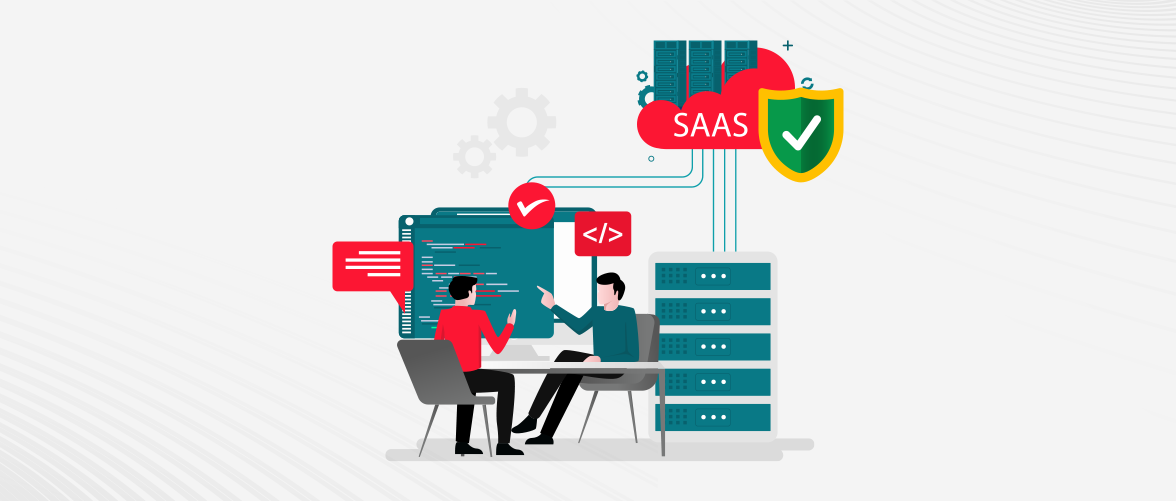Why is SaaS important for your business?
05 Feb 2024

Software as a Service (SaaS) is a software delivery model where a software application is hosted and distributed over the internet by a third party. Software is accessible through a web browser or a mobile app, and customers pay a subscription fee to use the SaaS model. Businesses benefit from using the SaaS model because it is the service provider's responsibility to maintain and update the software. So as a client, you will always enjoy the latest version of the software with all the upgradation.
Some of the SaaS applications used in organisations are customer relationship management (CRM) software, enterprise resource planning (ERP) software, and HR management software (HRMS). The list doesn't end here. Since the emergence of cloud computing, SaaS has become increasingly popular, allowing easy access to software and data from anywhere.
Importance Of SaaS For Businesses
By utilizing SaaS, businesses are able to access technology and software that would otherwise be too expensive or difficult to implement on their own. Cloud-based SaaS applications enable businesses to access them from anywhere, and they can scale up or down as needed. Furthermore, SaaS providers usually handle all software maintenance, updates, and security, saving businesses a lot of time and resources. It is also more financially accessible to small and medium-sized businesses because it requires a subscription fee rather than a large upfront investment.
Top Benefits Of The SaaS Model For Businesses
SaaS frameworks offer many benefits to users, including:
- Lower Resource costs:Customers purchasing traditional on-premise software installations may have to pay high license fees and other upfront costs. Businesses with little capital can find this challenging. Using a pay-as-you-go model, SaaS offers subscription fees based on usage.
- Free Trials:Software providers can offer free software trials using the SaaS model. Customers can test a program for free for 7, 14 or 30 days to decide whether they want to subscribe and pay. The free trial allows consumers to determine if the product meets their needs.
- Offers Flexibility:In SaaS models, customers can only pay for the product when they use it, providing significant flexibility. Since subscriptions are usually easy to sign up for and cancel, customers can start or stop using a service as per their business needs.
- Provides Convenience:Clients don't need IT expertise since they can easily access the SaaS model. New software programs can be adopted quickly and used immediately by employees. Clients can focus and use valuable work hours on more important tasks because SaaS vendors solve technical issues, manage tedious technical tasks, and secure data.
- Updates Continuously:Software can be updated continuously using the SaaS model since the provider manages these updates. Some vendors release new versions every week or a few months to ensure that a product remains relevant to current user needs.
Blockchain SaaS Model
The blockchain SaaS model is a blockchain-based application or platform. Most blockchain SaaS solutions are built on top of existing blockchain networks such as Ethereum, EOS, or Hyperledger. In addition to creating, deploying and managing smart contracts, they can create digital assets, execute decentralised finance operations, and so on. Whether a business is a small startup or a large corporation, these solutions can be used by them all. Their services can be used in various industries, including finance, supply chain, healthcare, and others. In addition to bringing increased transparency, security, efficiency, and trust to businesses, blockchain SaaS solutions are also expected to bring many other benefits. As a result, companies can incorporate blockchain technology into their operations without requiring in-house expertise or spending the costs and time associated with building their own blockchain infrastructure.
As the business environment changes, it is essential to improve your business operations. It is becoming increasingly common for businesses to expect more from the services they pay for. For example, a SaaS software system for service management can result in more than just happier clients; it can also reduce costs and improve efficiency. Businesses can benefit from SaaS by becoming more efficient and cost-effective while accessing the latest software and technology.